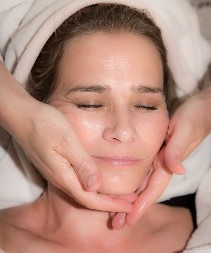How to Pick the Best Esthetician Program near Atlantic North Carolina
 Now that you have decided to enter the field of cosmetology and attend an esthetician school near Atlantic NC, the process starts to locate and enroll in the ideal program. It’s imperative that the school you pick not only furnishes the appropriate education for the specialty you have chosen, but also readies you for passing the licensing exam. When you begin your preliminary search, you might be somewhat confused about the difference between beauty schools and cosmetology schools. Well don’t be, because the names are pretty much interchangeable and both relate to the same kind of school. We’ll talk a little bit further concerning that in the following section. If you plan on commuting to classes you will need to locate a school that is within driving distance of your Atlantic residence. Tuition will likewise be a critical factor when assessing potential schools. Just bear in mind that because a school is the nearest or the least expensive it’s not automatically the right option. There are various other qualifications that you should evaluate when analyzing schools, for instance their reputation and accreditation. We will review what questions you should ask about the cosmetology schools you are thinking about later in this article. Before we do, let’s discuss a little bit about what cosmetology is, and what kinds of programs are available.
Now that you have decided to enter the field of cosmetology and attend an esthetician school near Atlantic NC, the process starts to locate and enroll in the ideal program. It’s imperative that the school you pick not only furnishes the appropriate education for the specialty you have chosen, but also readies you for passing the licensing exam. When you begin your preliminary search, you might be somewhat confused about the difference between beauty schools and cosmetology schools. Well don’t be, because the names are pretty much interchangeable and both relate to the same kind of school. We’ll talk a little bit further concerning that in the following section. If you plan on commuting to classes you will need to locate a school that is within driving distance of your Atlantic residence. Tuition will likewise be a critical factor when assessing potential schools. Just bear in mind that because a school is the nearest or the least expensive it’s not automatically the right option. There are various other qualifications that you should evaluate when analyzing schools, for instance their reputation and accreditation. We will review what questions you should ask about the cosmetology schools you are thinking about later in this article. Before we do, let’s discuss a little bit about what cosmetology is, and what kinds of programs are available.
Defining Cosmetology
 Cosmetology is a profession that is all about making the human anatomy look more beautiful through the application of cosmetics. So naturally it makes sense that a number of cosmetology schools are regarded as beauty schools. Most of us think of makeup when we hear the word cosmetics, but basically a cosmetic can be almost anything that improves the appearance of a person’s skin, hair or nails. In order to work as a cosmetologist, the majority of states require that you take some type of specialized training and then become licensed. Once you are licensed, the work settings include not only Atlantic NC beauty salons and barber shops, but also such businesses as spas, hotels and resorts. Many cosmetologists, after they have acquired experience and a client base, launch their own shops or salons. Others will begin servicing customers either in their own homes or will travel to the client’s house, or both. Cosmetology college graduates are known by many professional names and work in a wide range of specializations including:
Cosmetology is a profession that is all about making the human anatomy look more beautiful through the application of cosmetics. So naturally it makes sense that a number of cosmetology schools are regarded as beauty schools. Most of us think of makeup when we hear the word cosmetics, but basically a cosmetic can be almost anything that improves the appearance of a person’s skin, hair or nails. In order to work as a cosmetologist, the majority of states require that you take some type of specialized training and then become licensed. Once you are licensed, the work settings include not only Atlantic NC beauty salons and barber shops, but also such businesses as spas, hotels and resorts. Many cosmetologists, after they have acquired experience and a client base, launch their own shops or salons. Others will begin servicing customers either in their own homes or will travel to the client’s house, or both. Cosmetology college graduates are known by many professional names and work in a wide range of specializations including:
- Estheticians
- Hairdressers
- Hairstylists
- Beauticians
- Barbers
- Manicurists
- Nail Technicians
- Makeup Artists
- Hair Coloring Specialists
- Electrolysis Technicians
As formerly mentioned, in most states working cosmetologists have to be licensed. In some states there is an exemption. Only those offering more skilled services, for instance hairstylists, are required to be licensed. Others working in cosmetology and less skilled, such as shampooers, are not required to get licensed in those states.
Click Here to Get Free Information on Esthetician Schools Near You!
Esthetician Degrees
 There are essentially two avenues available to receive esthetician training and a credential upon completion. You can enroll in a certificate (or diploma) program, or you can pursue an Associate’s degree. Certificate programs typically require 12 to 18 months to complete, while an Associate’s degree usually takes about 2 years. If you enroll in a certificate program you will be instructed in each of the major areas of cosmetology. Briefer programs are available if you prefer to specialize in just one area, such as esthetics. A degree program will also probably include management and marketing training in order that graduates are better prepared to run a parlor or other Atlantic NC business. Higher degrees are not common, but Bachelor and Master’s degree programs are available in such specialties as salon or spa management. Whatever type of program you choose, it’s essential to make certain that it’s recognized by the North Carolina Board of Cosmetology. Numerous states only approve schools that are accredited by certain reputable organizations, for example the American Association of Cosmetology Schools (AACS). We will discuss the advantages of accreditation for the school you choose in the following segment.
There are essentially two avenues available to receive esthetician training and a credential upon completion. You can enroll in a certificate (or diploma) program, or you can pursue an Associate’s degree. Certificate programs typically require 12 to 18 months to complete, while an Associate’s degree usually takes about 2 years. If you enroll in a certificate program you will be instructed in each of the major areas of cosmetology. Briefer programs are available if you prefer to specialize in just one area, such as esthetics. A degree program will also probably include management and marketing training in order that graduates are better prepared to run a parlor or other Atlantic NC business. Higher degrees are not common, but Bachelor and Master’s degree programs are available in such specialties as salon or spa management. Whatever type of program you choose, it’s essential to make certain that it’s recognized by the North Carolina Board of Cosmetology. Numerous states only approve schools that are accredited by certain reputable organizations, for example the American Association of Cosmetology Schools (AACS). We will discuss the advantages of accreditation for the school you choose in the following segment.
Online Esthetician Classes
Online esthetician schools are accommodating for Atlantic NC students who are employed full time and have family obligations that make it hard to enroll in a more traditional school. There are many web-based cosmetology school programs available that can be accessed by means of a personal computer or laptop at the student’s convenience. More conventional cosmetology schools are often fast paced because many programs are as short as 6 or 8 months. This means that a significant portion of time is spent in the classroom. With online programs, you are dealing with the same amount of material, but you are not spending numerous hours outside of your home or driving to and from classes. On the other hand, it’s imperative that the program you select can provide internship training in nearby salons and parlors so that you also obtain the hands-on training required for a complete education. Without the internship portion of the training, it’s difficult to obtain the skills required to work in any facet of the cosmetology field. So don’t forget if you decide to enroll in an online school to confirm that internship training is provided in your area.
Questions to Ask Esthetics Trade Schools
 Following is a series of questions that you need to research for any esthetician training school you are considering. As we have already discussed, the location of the school relative to your Atlantic residence, together with the expense of tuition, will probably be your first qualifiers. Whether you would like to pursue a certificate, diploma or a degree will probably be next on your list. But once you have narrowed your school options based on those preliminary qualifications, there are additional factors that you must research and take into consideration before enrolling in a cosmetology school. Below we have put together several of those additional questions that you should ask every school before making a final selection.
Following is a series of questions that you need to research for any esthetician training school you are considering. As we have already discussed, the location of the school relative to your Atlantic residence, together with the expense of tuition, will probably be your first qualifiers. Whether you would like to pursue a certificate, diploma or a degree will probably be next on your list. But once you have narrowed your school options based on those preliminary qualifications, there are additional factors that you must research and take into consideration before enrolling in a cosmetology school. Below we have put together several of those additional questions that you should ask every school before making a final selection.
Is the Program Accredited? It’s important to make certain that the esthetician school you enroll in is accredited. The accreditation should be by a U.S. Department of Education acknowledged local or national agency, such as the National Accrediting Commission for Cosmetology Arts & Sciences (NACCAS). Programs accredited by the NACCAS must meet their high standards assuring a superior curriculum and education. Accreditation can also be necessary for obtaining student loans or financial aid, which frequently are not available in 28511 for non- accredited schools. It’s also a requirement for licensing in several states that the training be accredited. And as a final benefit, numerous Atlantic NC employers will not employ recent graduates of non-accredited schools, or might look more positively upon individuals with accredited training.
Does the School have an Excellent Reputation? Every esthetician college that you are seriously considering should have a good to outstanding reputation within the industry. Being accredited is an excellent starting point. Next, ask the schools for testimonials from their network of businesses where they have referred their students. Check that the schools have high job placement rates, signifying that their students are highly sought after. Visit rating companies for reviews together with the school’s accrediting organizations. If you have any connections with Atlantic NC salon owners or managers, or any person working in the field, ask them if they are familiar with the schools you are considering. They may even be able to recommend others that you had not considered. Finally, contact the North Carolina school licensing authority to see if there have been any grievances submitted or if the schools are in full compliance.
What’s the School’s Focus? Many esthetician schools offer programs that are expansive in nature, focusing on all facets of cosmetology. Others are more focused, providing training in a specific specialty, for example hairstyling, manicuring or electrolysis. Schools that offer degree programs typically broaden into a management and marketing curriculum. So it’s essential that you enroll in a school that specializes in your area of interest. If your objective is to be trained as an esthetician, make sure that the school you enroll in is accredited and well regarded for that program. If your vision is to open a Atlantic NC beauty salon, then you want to enroll in a degree program that will teach you how to be an owner/operator. Selecting a highly rated school with a weak program in the specialty you are seeking will not provide the training you require.
Is Plenty of Live Training Provided? Practicing and refining esthetician skills and techniques demands plenty of practice on people. Find out how much live, hands-on training is furnished in the cosmetology classes you will be attending. A number of schools have salons on site that make it possible for students to practice their growing talents on volunteers. If a beauty school offers minimal or no scheduled live training, but rather relies mainly on the use of mannequins, it may not be the most effective alternative for developing your skills. Therefore look for other schools that offer this kind of training.
Does the School Provide Job Assistance? When a student graduates from an esthetician academy, it’s essential that he or she gets assistance in securing that first job. Job placement programs are an important part of that process. Schools that furnish aid maintain relationships with Atlantic NC employers that are looking for skilled graduates available for hiring. Check that the schools you are looking at have job placement programs and ask which salons and businesses they refer students to. Also, ask what their job placement rates are. High rates not only affirm that they have wide networks of employers, but that their programs are highly regarded as well.
Is Financial Assistance Available? Most esthetician schools offer financial aid or student loan assistance for their students. Ask if the schools you are reviewing have a financial aid department. Consult with a counselor and find out what student loans or grants you may get approved for. If the school is a member of the American Association of Cosmetology Schools (AACS), it will have scholarships accessible to students as well. If a school meets all of your other qualifications with the exception of expense, do not eliminate it as an option until you learn what financial help may be offered.
Weekend Esthetics Programs Online Atlantic North Carolina
Picking and enrolling in the ideal esthetician program is imperative to receive the necessary training to become a licensed cosmetology practitioner. Be sure to ask all the questions that you require so as to feel certain about your decision. Make sure to compile all of the information you get from the beauty school admissions departments, prioritize what matters the most to you, and then employ that information to compare schools. A good beginning in your due diligence procedure is to make sure that the institution and program you select are accredited and have outstanding reputations within the profession. You originally came to this website due to an interest in Weekend Esthetics Programs Online and wanting more information on the topic Aesthetic Courses. However, if you start with that base, and answer the additional questions supplied in this post, you will be able to reduce your list of schools so that you can make the right selection. Once you graduate and pass your licensing exam, you will be confident that you are qualified to begin your career as a professional esthetician in Atlantic NC.
More Beauty Spots in Atlantic North Carolina
2019 Atlantic hurricane season
The 2019 Atlantic hurricane season is an upcoming event in the annual formation of tropical cyclones in the Northern Hemisphere. The season will officially begin on June 1, 2019, and end on November 30, 2019. These dates historically describe the period each year when most tropical cyclones form in the Atlantic basin and are adopted by convention. However, tropical cyclogenesis is possible at any time of the year.
Ahead of and during the season, several national meteorological services and scientific agencies forecast how many named storms, hurricanes, and major hurricanes (Category 3 or higher on the Saffir-Simpson scale) will form during a season and/or how many tropical cyclones will affect a particular country. These agencies include the Tropical Storm Risk (TSR) Consortium of University College London, the National Oceanic and Atmospheric Administration (NOAA) and Colorado State University (CSU). The forecasts include weekly and monthly changes in significant factors that help determine the number of tropical storms, hurricanes, and major hurricanes within a particular year. Some of these forecasts also take into consideration what happened in previous seasons and the state of the El Niño–Southern Oscillation. On average, an Atlantic hurricane season between 1981 and 2010 contained twelve tropical storms, six hurricanes, and three major hurricanes, with an Accumulated Cyclone Energy (ACE) index of between 66 and 103 units.[1]
The first forecast for the year was released by TSR on December 11, 2018, which predicted a slightly below-average season in 2019, with a total of 12 named storms, 5 hurricanes, and 2 major hurricanes, due to the anticipated presence of El Niño conditions during the season.[2] On April 4, 2019, CSU released its forecast, predicting a near-average season of 13 named storms, 5 hurricanes and 2 major hurricanes.[4] The next day, TSR released an updated forecast that reiterated its earlier predictions.[5]North Carolina State University released their forecast on April 16, predicting slightly-above average activity with 13–16 named storms, 5–7 hurricanes and 2–3 major hurricanes.[6]
